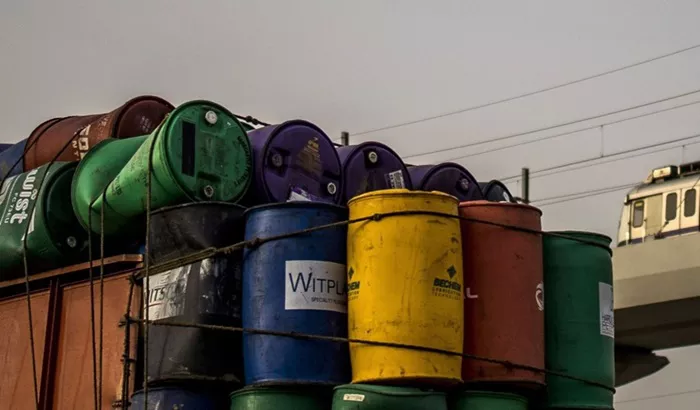The Bangladesh Petroleum Corporation (BPC) is poised to save an estimated Tk760 crore in premiums for fuel oil imports during the first half of 2025. This reduction comes as a result of strategic negotiations and relaxed tender conditions, aimed at lowering transportation costs.
Though the savings will not lead to a decrease in consumer fuel prices, BPC officials suggest that these cost reductions will help ease the financial burden caused by rising expenses.
The BPC has outlined plans to import 25.65 lakh tonnes of fuel oil from January to June 2025, according to officials from the Ministry of Power, Energy, and Mineral Resources. Of this, 14 lakh tonnes of refined oil will be procured through negotiated premiums, which are expected to reduce costs by $2 to $3.98 per unit compared to previous rates.
Fuel oil prices in Bangladesh are based on price assessments from Platts, which publishes pricing for Singapore-based oil products. The purchase price is calculated by averaging prices from five days, including the day of loading and two days before and after. A premium is then added to this average to cover various supplier service charges, including shipping, insurance, and operational costs.
In a significant development, the premium for diesel, which accounts for 65-70% of Bangladesh’s total fuel oil imports, has been cut to $5.11 per barrel from $8.75 per barrel for the July to December 2024 period. Similar reductions have been made for other refined fuels: the premium for Jet A-1 aviation fuel has fallen to $7.32 per barrel from $10.88, while octane’s premium has dropped to $5.93 per barrel from $9.88. Additionally, the premium for furnace oil (HSFO) has been lowered to $44.68 per tonne from $46.70, and the premium for marine fuel has been reduced to $72.90 per tonne from $76.88.
These agreements to secure refined fuel at reduced rates were finalized in Singapore last month. The BPC delegation, led by Energy and Mineral Resources Secretary Mohammad Saiful Islam and BPC Chairman Md Amin Ul Ahsan, participated in these talks, alongside other BPC officials.
Fuel supplies will come from several international suppliers, including OQ Trading Limited (Oman), Petco Trading Labuan Company Limited (Malaysia), Emirates National Oil Company (UAE), PTT International Trading (Thailand), and PT Bumi Siak Pusako Zapin (Indonesia).
The Tk760 crore savings will be split between government-to-government (G2G) agreements and international tenders. Approximately Tk390 crore will be saved through G2G agreements, while the remaining Tk370 crore will come from international tenders. For example, the premium for diesel under international tenders has fallen to $5.26 and $5.14 per barrel from $8.83 and $8.74, respectively, contributing to the overall savings.
Bangladesh’s annual fuel oil demand totals around 70-75 lakh tonnes, with 20-25 lakh tonnes sourced through G2G agreements and the remainder through international tenders. Additionally, the country imports 13-15 lakh tonnes of crude oil from Saudi Arabia and the UAE, which is refined at the Eastern Refinery in Chattogram.
The fluctuating premiums in recent years have been influenced by geopolitical factors, including the Ukraine-Russia war, which saw premiums peak close to $13 per barrel in 2023. Prior to 2022, premiums were below $3 per unit, but the increase in costs led to concerns over preferential treatment for certain suppliers and limited opportunities for negotiation.
BPC Chairman Md Amin Ul Ahsan credited the recent savings to a more competitive tender process and the clearing of outstanding payments with suppliers. He emphasized that the relaxed conditions in the international tender process allowed for greater competition, resulting in favorable terms for Bangladesh.
He noted, “This time, the international tender was very competitive. Many conditions have been relaxed, and as there are no outstanding payments, we were able to negotiate strongly.”
Despite the savings, fuel prices for consumers will remain unaffected for the time being. Ahsan explained that while the international price of fuel oil and premium costs influence consumer prices, the devaluation of the taka against the dollar has made price hikes unavoidable. However, with the recent reductions in premium costs, there will be no immediate need to increase fuel prices.
Power, Energy, and Mineral Resources Adviser Muhammad Fouzul Kabir Khan also stressed the importance of monitoring regional price differences to prevent smuggling. He explained that if Bangladesh’s fuel prices are lower than those in neighboring regions, such as Kolkata, it could lead to fuel smuggling.
With these successful negotiations, Bangladesh is taking significant steps to control its fuel oil import costs, ensuring stability in the domestic fuel market and avoiding price hikes for consumers in the first half of 2025.

